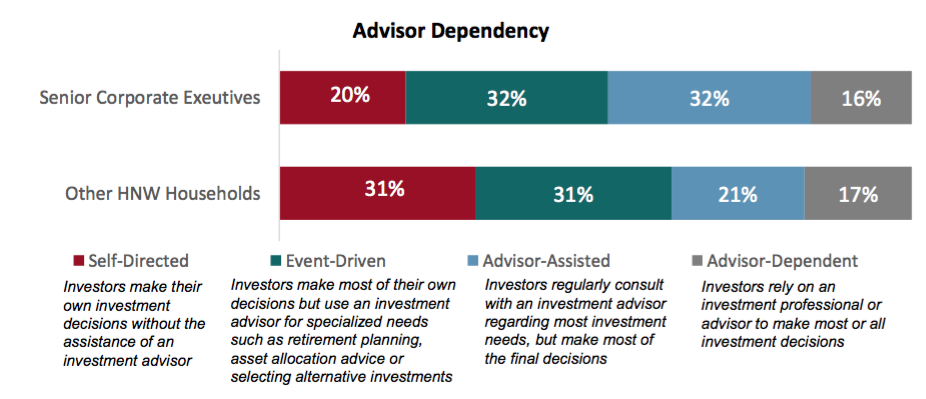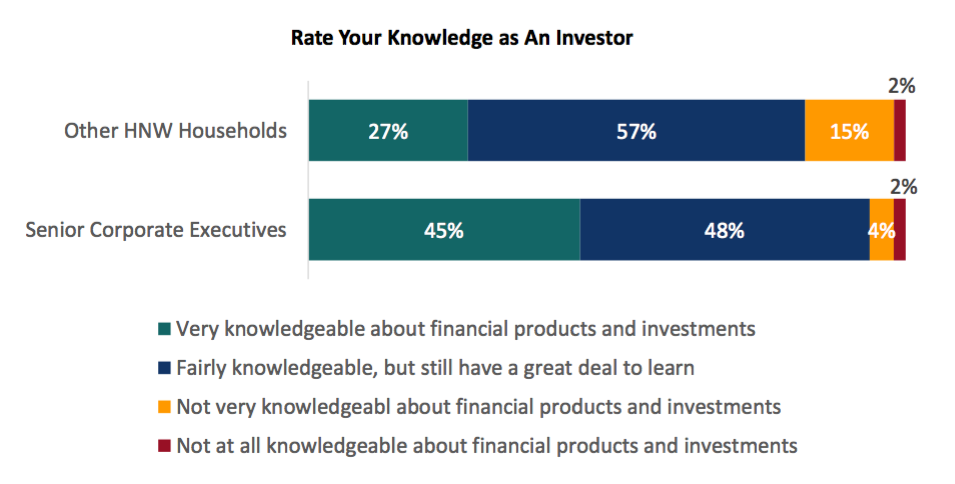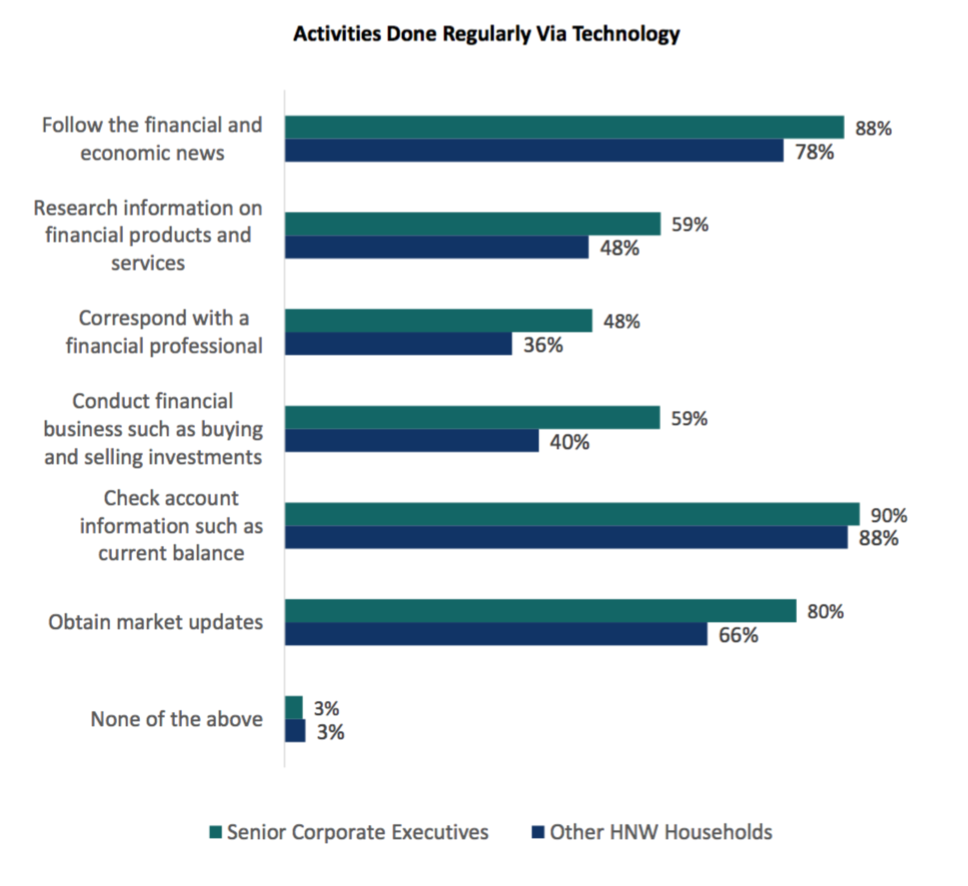C-suite investors are interested in working with advisors to engage in complex planning and investing, but they expect more give-and-take than the average client.
A recent study by Spectrem Group surveyed 629 senior corporate executives (SCEs) across the country and the results offer some valuable insight for advisors looking to work with this demanding and selective group.
SCEs are far more likely than other high net worth groups to be open to the idea of working with an advisor, according to Spectrem’s data. Forty-eight percent of respondents report working with an advisor in some capacity, as compared to 38 percent in other HNW households. Digging further into these numbers, while SCEs consider themselves to be advisor-dependent at a similar level to other HNW individuals (16 percent and 17 percent, respectively), they are much more likely to be advisor-assisted. Thirty-two percent of SCEs consider themselves advisor-assisted, as compared to 21 percent of other HNW individuals. This gap alone accounts for the vast majority of the aforementioned 10 percent difference in advisor engagement between the two groups.

This desire to actively collaborate with an advisor, instead of blindly ceding control to one, is borne out throughout the study. Fifty-four percent of respondents enjoy investing and don’t want to give it up—10 percent more than in the rest of the HNW population. As such, it’s no surprise that SCEs are also more involved in their investments. Some 52 percent of SCEs consider themselves likely to be involved in the day-to-day management of their investments, as opposed to 48 percent of other HNW investors.
Interestingly, despite SCEs’ increased willingness to work with financial advisors, they actually have less faith in advisors’ ability and expertise than other HNW investors. Fifty-one percent of SCEs feel that most financial advisors are very professional and knowledgeable, as compared to 57 percent of other HNW individuals. The reason for this dissonance appears to be due to SCEs’ faith in their own financial knowledge and abilities. Forty-five percent of SCEs consider themselves very knowledgeable about financial products and investments, a huge jump over the rest of the HNW community, which only offered the same answer at a 27 percent rate. Thus, it appears that much of an advisor’s appeal to SCEs is a matter of bandwidth: SCEs have supreme confidence in their own financial knowledge, but are simply too busy to do all of the legwork themselves, so they delegate to advisors as they would any other employee.

Additionally, though social media and mobile technology haven’t really caught on yet as a means of advisor communication among HNW investors, SCEs are the most likely among this group to attempt to reach out through these channels, doing so at roughly twice the rate (albeit still low) of other HNW investors across most platforms—except for text messaging, which seems to be a particular favorite. Twenty-eight percent of SCEs have communicated with a financial advisor via text message, nearly twice the rate of the rest of the HNW investor community. Taken as a whole, SCEs are significantly more likely to regularly use technology for financial reasons and information than other HNW households, particularly as a means of conducting financial business, where they exceed other HNW households by nearly 20 percent.

Ultimately, the study indicates that advisors interested in working with SCEs should present them with strong ideas and advice on their investment plans, in order to demonstrate their value to a group that already considers itself to be extremely financially knowledgeable. Expect such clients to do their own research on your suggestions and offer some pushback. If they can get what you’re offering them on their own, then they will.





